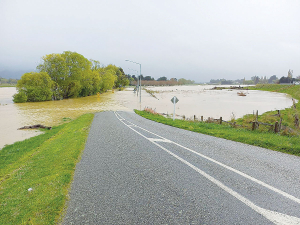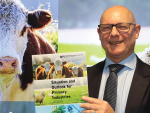A group of volunteers from Lincoln University known as the 'Handy Landies' is among those descending on Otago to help farmers get their properties back to normal.
Dr John Roche, the Director of Ministry for Primary Industries (MPI)'s 'On Farm Support' team, says the cleanup in Otago has begun.
Community and sector groups, including the Rural Support Trust and his own team, are working closely together to get a clear understanding of farmers' needs, to make sure they get the help and support they need.
He says the volunteer groups will be helping farmers clear and repair fences and clear riparian areas to make sure these are not lost.
"The locals have been told to keep an eye on the Facebook pages to find out where the working bees are being held so that they can get along and help out as well," Roche told Rural News.
Roche says there's been a concerted effort by MPI and all the groups involved to contact farmers. He says his organisation has proactively contacted more than 140 farmers. He says they are monitoring the feed supply situation and adds that Federated Farmers is doing a good job in this area.
In Southland, the situation is very different to the floods in Otago. Roche says Southland got twice the average rainfall for September and that came on top of already sodden pastures. He says pasture growth is slow and fewer supplements are available, right when dairy farmers are moving into mating their cows.
Read More
"Many are concerned at the long-term implications of the weather, including the condition of cows at this time of the year," he says.
Roche says in Otago it's been a hard season with the province going from a long dry spell to persistent rain. He says the key thing from now on is to get farmers together to talk through their individual situation and not stay stuck on their properties worrying.
He says all the community and sector groups are doing a great job running events and doing their best to support farmers and their families.
"With the rain still coming, that doesn't help, and I know from my own experience there is nothing worse than constantly putting on your wet weather gear in the middle of October.
"It's not good for morale or mental health and so the most important thing now is that people look after each other. Summer will come," he says.


















